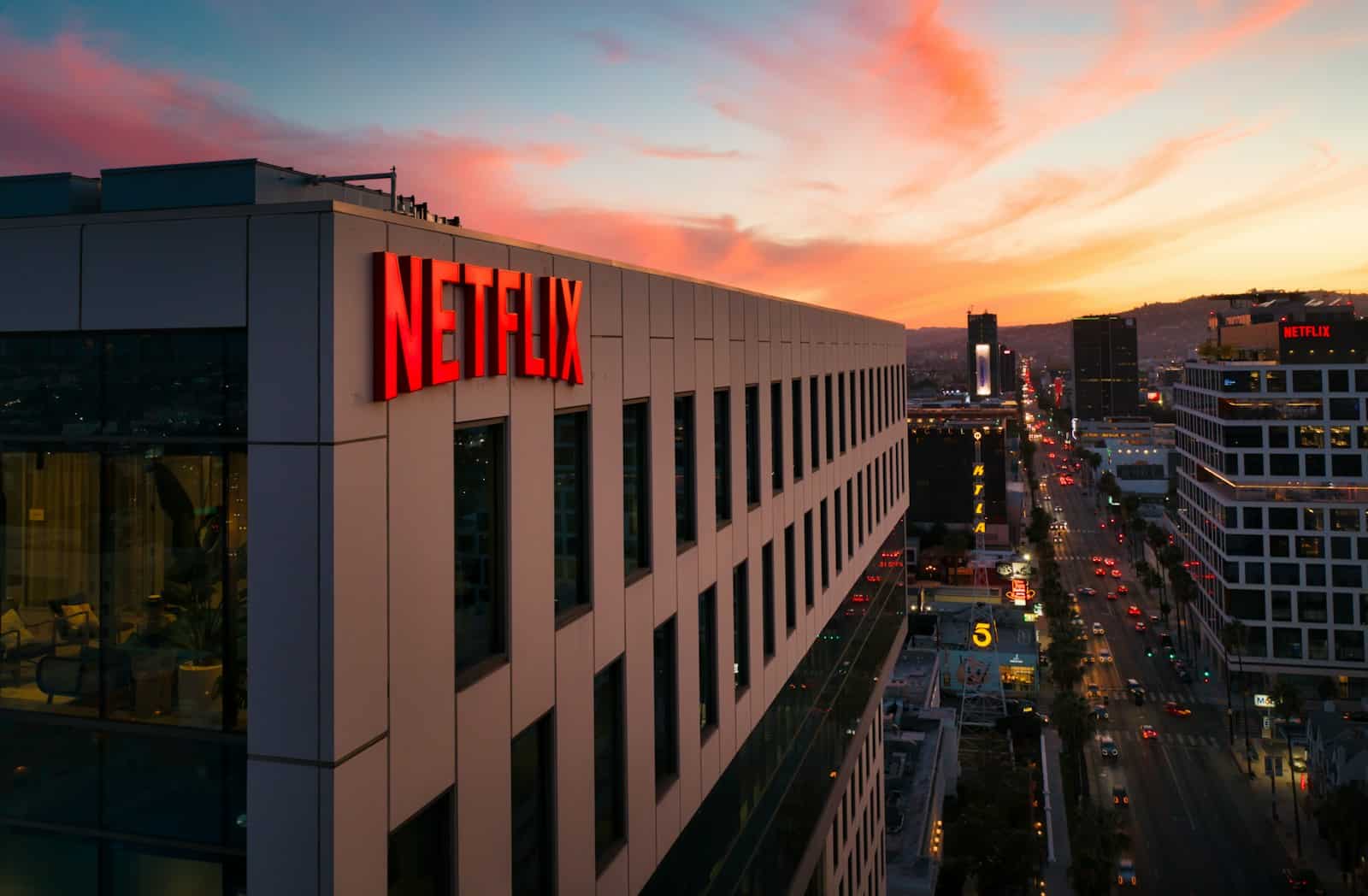Netflix is moving forward with plans to develop a large film and television studio at the former Fort Monmouth site in Oceanport, New Jersey. The company has recently received initial approval from the planning board, amid discussions about the project’s impact on the community and its design.
The rise of streaming services has led to a significant shift in production strategies, prompting major companies to invest heavily in building their own state-of-the-art studios. This expansion in production infrastructure marks the beginning of a new era in content creation, providing these media giants with greater control and flexibility.
Netflix Expands Production Footprint with New Jersey Studio
Fort Monmouth: A New Hub for Content Creation
Netflix is building a large production studio at the former Fort Monmouth military base in New Jersey. This significant investment marks a major expansion of the streaming giant’s production capabilities. The site, once a key U.S. Army installation, will soon become a center for film and television production.
Project Details: Size and Scope
The studio will occupy nearly 300 acres of the former base, which spans parts of Oceanport and Eatontown. The plans include:
- 12 sound stages for filming
- Production offices and support spaces
- Backlots for outdoor sets
This substantial project represents an investment of over $900 million by Netflix. It signals a strong commitment to creating original content.
Progress and Approvals
The project has made significant progress in recent months. The Oceanport borough planning board approved the site plans for the first phase of construction. This approval allows Netflix to begin building the core infrastructure for the studio. Some demolition and site preparation has already taken place. The project is expected to be completed in 2028.
Economic Impact and Job Creation
The development is projected to bring substantial economic benefits to the region. It will create thousands of jobs during the construction phase and many more permanent positions once the studio is operational. These jobs will range from construction workers and technicians to production staff, actors, and other industry professionals. The studio will also likely attract related businesses to the area, further boosting the local economy.
A Shift in the Entertainment Landscape
Netflix’s decision to build its own studio complex reflects a broader trend in the entertainment industry. Streaming services are increasingly investing in their own production facilities to control costs and streamline content creation. This move allows Netflix to have greater control over its production pipeline and create a more efficient and integrated production process.
Project Details
| Feature | Details |
|---|---|
| Location | Former Fort Monmouth, Oceanport/Eatontown, NJ |
| Acreage | Approximately 300 acres |
| Investment | Over $900 million |
| Sound Stages | 12 |
| Expected Completion | 2028 |
Short Summary:
- Netflix aims to create a $903 million production studio campus at Fort Monmouth.
- The project involves multiple phases, beginning with four sound stages in the McAfee zone.
- Local planning approvals from Oceanport are in progress, while concerns were raised over traffic, signage, and aesthetic compatibility.
As the sun sets on the expansive grounds of Fort Monmouth, a new era in entertainment seems to be dawning. Netflix, the leading streaming giant, is laying the groundwork for a transformative production studio campus on this historic site. The proposed multi-billion-dollar project is not just a boon for the company but is anticipated to invigorate the local economy as well.
Netflix’s bold $903 million vision includes the establishment of multiple sound stages, alongside ancillary facilities, aiming to position New Jersey as a key player in the film and media industry, a sector that has crucially evolved since the early days of filmmaking.
The Project Overview
At the heart of this grand vision is the McAfee Zone, comprising 29 acres of land primarily within Oceanport, with a small portion extending into neighboring Eatontown. The ambitious plan outlines the first phase of construction involving the creation of four sound stages; two will be individual structures, each covering about 22,000 square feet and rising 70 feet high, while the other two will be twin sound stages occupying a total of 83,555 square feet.
“The planning board approval demonstrates that the community shares our enthusiasm for building a new studio in New Jersey, the birthplace of the modern film industry,” stated a Netflix spokesperson.
In addition to sound stages, the campus will include various support facilities: a 61,800-square-foot mill building for set design and construction, a 12,000-square-foot warehouse, and renovations to the historical McAfee Center. This center, once home to military communication operations, will be repurposed for studio business and production support.
Economic and Community Impact
Local residents and officials are acutely aware of the potential this project holds for the community. Given the estimated $125 million in tax incentives available under the Garden State Film and Digital Media Jobs Act, Netflix is poised to become an economic engine for the state.
However, there are apprehensions surrounding the implications of such a large-scale operation. Kenneth Falcon, Netflix’s senior project manager, noted that construction on the McAfee studio is slated to commence in the fourth quarter of 2025, contingent upon obtaining further approvals from various local and state authorities.
Concerns of Local Residents
During the most recent planning meetings, board members raised several concerns regarding the impact on local quality of life. Among these was Netflix’s request for larger studio identification signs. Currently, the borough permits only 10-foot-tall signs, while Netflix seeks a variance for 12-foot signs to aid in emergency identification.
“We need to do whatever we can to ease the burden on residents,” remarked Oceanport Planning Board member Leslie Widdis.
This request has sparked debate; some members worry that large, illuminated signage could disturb community tranquility.
Traffic and Transportation
Another significant concern is traffic. The McAfee studio campus is projected to generate around 107 vehicle trips during peak weekday mornings and 64 during peak evenings. Karl Pehnke of Langan Engineering presented a traffic report suggesting that 90% of traffic would utilize the nearby Route 35, alleviating fears of overwhelming congestion.
In comparison, a traffic day at Fort Monmouth in 2007 observed about 12,500 personnel arriving with over 11,000 vehicles. In contrast, Netflix anticipates a much lower volume, emphasizing a modernized approach to operations.
However, these traffic predictions have not silenced skepticism among board members regarding their accuracy, particularly if the studio usage expands beyond the initial phases.
Design Considerations
Aesthetics have also been a point of negotiation. The project proposes an 8- to 10-foot pre-cast concrete wall encircling the campus for security measures. Board member Darren Davis expressed concerns over the structure’s design, suggesting red brick to maintain the historic character of Fort Monmouth.
“I think we’re losing the quality that we’re trying to establish in Oceanport on a main thoroughfare by changing it to modular concrete stamped brick,” said Davis.
Netflix representatives, however, maintained their design plans, stating that they aim to preserve operational functionality while addressing security needs.
Looking Ahead
The path forward is complex, involving multi-tiered approvals, not just from Oceanport but also from Eatontown and various state departments. Netflix, having purchased the Fort Monmouth land for $55 million, is committed to expediting this transformation into a full-fledged entertainment hub.
The project isn’t just about creating film sets; it outlines future phases for additional facilities, including retail shops, a helipad, theater, hotel, and visitor attractions. These developments are set within a timeframe of eight years from the closure of the deal, marking a profound shift in the landscape of the region.
“While we still have a lot of work ahead, we are excited to continue partnering with local officials and the community to transform this historic space into a world-class production facility,” a Netflix spokesperson concluded.
The local communities are experiencing a mix of anticipation and caution as they navigate the transformative project with Netflix. This collaboration marks a pivotal moment for the future relationship between film, media production, and local resilience. The dynamic between Netflix and the local community will be crucial as the company progresses through the approval stages and into construction. Ongoing dialogue between Netflix representatives and local officials seems to be the cornerstone for addressing community concerns and ensuring that the project’s development benefits all stakeholders involved.
With such grand ambitions on the Northeast coast, Netflix aims not just to create another studio but to foster an environment that respects the area’s historic context while ushering in a new chapter for film production in New Jersey. As planning board meetings continue in Eatontown and other locations, all eyes will be on how Netflix adapts its plans to align with local aesthetics and community needs, ensuring that the economic benefits do not come at the expense of local charm and character.







